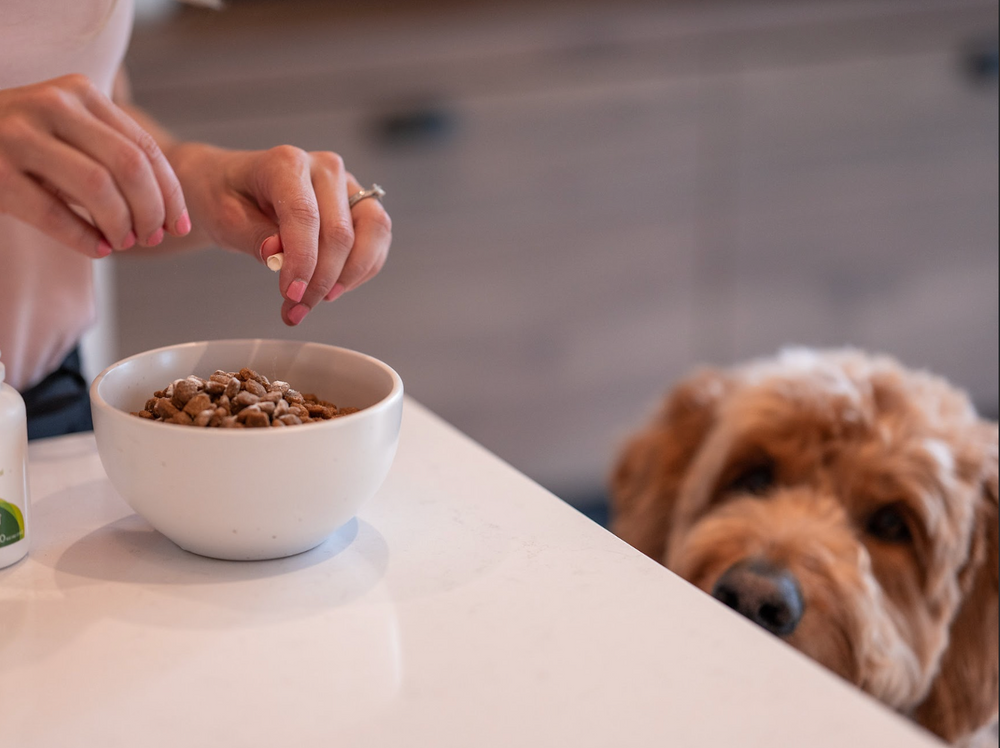How to Teach Your Dog to Stay Home Alone? 2023
If your furry friend is anything like most dogs, chances are he's not that keen about having alone time—especially if you've got eight hours of work or even longer periods in some cases. It's also likely that your dog will display destructive behavior if he thinks that he isn't getting the right amount of mental and physical stimulation that he deserves.
Common examples of this bad behavior include barking all day long, biting your favorite shoes, peeing on the rug, pulling the curtains on the floor, destroying his chew toys, and spreading the contents of the trash can in the kitchen or living room, just to name a few.
You're Leaving Dog Home Alone at Some Point

The whole thing is just frustrating, right? One minute you're leaving your dog home and now you've got a lot of things to worry about. If you ever felt this way, you're not alone. Thousands of dogs act in a frustrating manner when their parents are away.
Unfortunately, this is one of the biggest reasons why so many pooch moms and dads abandon their fur babies. Before you think about doing the same to your pet, here's something you need to reflect on first: whose choice was it to get a new pup or a new dog in the first place?
Separation Anxiety is Something You Should Never Ignore

Regardless if you've got a puppy or an older dog, it's important to remember that taking in a pet requires lots of love, patience, and commitment. You're not just taking ownership of an animal in this situation. Instead, you're welcoming a new family member.
This is why you should keep in mind that your dog may simply be going through separation anxiety, which needs to be taken care of properly and immediately before it becomes worse. We're going to help you do just that with a few useful tips when you follow along.
It's helpful to determine why your dog is acting this way.
Unlike what a lot of people mistakenly think, dealing with separation anxiety is not just about keeping your dog occupied with a new toy or engaging him in physical activity just before you left home. There are actually key strategies you need to keep in mind when dealing with this issue.
Dealing with the problem immediately is crucial.
Correcting this problem as early as possible is crucial since it will gradually increase in intensity and duration over time. Just imagine how stressful it would be for you to drop by for a sudden mid-day visit to your house because you're worried about what your dog is up to!
And no, we won't go into very technical details about crate training and similar techniques. We will focus on tips about creating a positive association between having alone time and your fur baby's designated space instead. It's also highly recommended that you do this when your pet is still just a puppy for practical reasons.
A Few Tips in Managing Separation Anxiety in Dogs

Before we go over the strategies we've emphasized earlier, remember that what we're doing here is a process and not some instant solution for good behavior in puppies or older dogs. If we're being honest, this will take a bit of time to pull off.
Be very patient with your pooch while doing this (not to mention having a few treats on hand for extra motivation) and you're going to be on the right track. So without further ado, here are the things you need to take note of:
#1. Play it cool.
Dog home alone for the first time? Expect some shenanigans to take place. And who wouldn't be angry when you immediately see a pile of trash or poo in the living room as soon as you open the front door? You might want to yell at the dog or even punish him in some way for the mess he's caused in the house.
But here's the thing: punishing your dog will only be a useless and pointless exercise. Your canine friend will not just easily forget why he is being punished, but the scolding and punishment will just aggravate the problem. You can treat this as a reminder that you won't be able to control your dog if you can't even control yourself.
#2. Acknowledge that this is a real problem.

Knowing that your dog is suffering from a real disorder might help you understand the situation when you leave him home alone. Remember that separation anxiety can still get in the picture even if he has other dogs or other animals to keep him company.
Just to emphasize, it is crucial to provide adequate food, water, and entertainment, such as toys, when leaving dogs home. This is essential if you're looking to engage your puppy (or older dog) in crate training or when you're designating him to his very own confinement area when he is home alone.
#3. Do not let puppies (or even adult dogs) sleep in your room.
While it is essential to have quality time with dogs daily, it is important for him to understand that he cannot be with you 24/7. This is highly recommended for puppies and younger dogs as a form of training. Here's a quick strategy: when you are about to go to bed, set him in that room, stay with him a little bit and leave, slowly increasing the period each time.
You can also assign dogs to a "confinement area" or "crate train area" where they can stay until you return home. Now, here is the hardest part: if your dog whines, barks, cries, or both, do not come back. And don't be tempted to sleep in his designated space! Remember to be firm and determined.
#4. Minimize your interaction when your leave or return.

There is a way that you can use to make the experience guilt-free when leaving your dog home alone behind closed doors. And this doesn't involve splurging on expensive food and toys, costly crate training equipment as well as high-priced exercise gear.
Whenever you're going out the door, pretend your fur baby is invisible for half an hour. And don't spend time with him like you normally would! This is akin to training your pup that leaving your dog home alone is a routine and he won't make such a big deal out of it before long.
#5. Patience is key.
This kind of disorder can take a while to fade away. This condition may also affect his ability to go on a potty break and fall asleep in some cases. Some puppies and older dogs may even skip feeding times when they're still adjusting to being left home.
Make sure you immediately establish a safe space that your dog or puppy can claim as his own. Reward him when you observe any improvement, no matter how small. Stay positive and patient since training pets that they will be left home alone at times is not an instant deal.
#6. Experiment with your "dog home alone" strategies.

There are simple and practical methods to ease your puppy or dog into being more comfortable with being home alone. These typically involve making your pet believe that you're still in the house. One such method is having background noise when you're out, such as leaving your TV or radio on.
I recommend using baby gates to limit your pet's access to other parts of the house to avoid any unexpected issues. You can also switch the confinement area or crate space of your puppy or older dog until you observe that he's not that restless or agitated anymore.
Just remember to provide him with all the necessities like food and water (as well as a treat or two). Including pee pads, grass pads and toys in your checklist also adds a nice touch. If you observe your strategy isn't working, mix things up and try again.
#7. Schedule a regular trip outside (the dog park is a nice choice).
Whether you have a puppy or an older dog, he will appreciate having a walk or some other activity that involves being outdoors. Besides giving you the opportunity to engage your pooch in play and exercise, it also helps him release stress hormones that can trigger or aggravate separation anxiety. A pup or dog with very minimal stress hormones is going to be a happy dog.
Moreover, a long walk is also one way to spend quality time with your pooch. It doesn't just help you become emotionally closer to your fur baby. Doing so not just helps boost his immune system, but also increases his confidence that you're always there for him even though he's home alone. A walk with your pup also has a lot of benefits for your health, too!
#8. Get professional help like a dog walker or a dog sitter.

Reaching out to a professional is a smart way to help your pet properly deal with his dog's home alone blues. You can get in touch with a trainer or dog walker. You can even sign up your pooch for a doggie daycare!
When you think you've already exhausted your options to help ease your pooch with being more comfortable at home alone, contacting a pro is one of the best and most straightforward decisions you will ever make. This works best when you have a puppy or a younger dog that still needs a lot of training.
A Natural Option You Can Go For When It Comes to Separation Anxiety
Dealing with separation anxiety in dogs should not be left to chance. And you don't have to spend a lot on conventional medicines while you're at it, too! Zumalka's CALMPET is designed to support and help maintain the nervous system of your dog to keep him clear from mental and behavioral health issues.
This homeopathic product is made from premium natural ingredients to ensure no adverse side effects will emerge. CALMPET also uses a gentle holistic approach to sustain an ideal nervous system balance. Whether you're looking to prevent or support your dog during separation anxiety, this natural option is a must-have in your home pet care checklist.








Thanks Elaina, your pet is blessed to have you
I appreciate your advice about consulting the vet or a professional dog trainer on how to train the dog to be independent. This will be on my to-do list once my puppy gets old enough. Right now, I think it’s best that I leave her in a doggie daycare if I wouldn’t be around for too long. https://www.barkhotelfordogs.com/playcare
This post is a very interesting and interesting topic to me. This post is really instructive. Because there are many different types of information given and there are many information to know about.
I completely agree with Cathy Thompson that it is very sad that your dog is not allowed to sleep with you. There are differing opinions about whether or not to share a bed with a dog. But not even allowing them into the bedroom is wrong, in my opinion, especially if there are no other pets to keep him/her company. I agree that being calm when leaving and coming home in order to normalize it is a healthy approach. The human’s energy is paramount in creating a calm dog.
I am always with my puppy when I go outside. But I also need to train my puppy for that as I can’t take her everywhere I go. For that, we should consult a dog training expert. There are many mobile apps where you can find dog training tips and dog experts as well.
Leave a comment